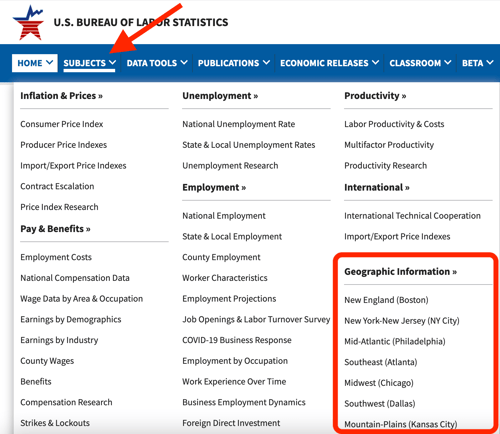Product marketing managers (PMMs) hold one of the most pivotal and collaborative roles at companies – they sit at the intersection of marketing, product, sales, and customer success.
PMMs are the overarching voices of the customer, messaging gurus, a seller’s best friend, and the key to accelerated adoption. While once viewed as an ambiguous position, companies across the globe now understand and see the value that PMMs bring to organizations – and they’re investing in this role more and more every year.
That’s why Crayon partnered with the Product Marketing Alliance for their 2021 Product Marketing Salary Report – to help ensure that PMMs understand their worth and how they stack up to their peers. After gathering extensive data from over 3,000 product marketers, the report provides insight into what a product marketing manager salary looks like and what external factors contribute to it.
For a preview of the report’s findings, we’ll cover:
- What you need to know (salary averages)
- Where you want to be (location)
- What you should consider (company headcount, gender wage gap, education level)
- What the future holds for you (career aspirations)
Let’s dig in and talk all things salary!
Get your copy of the 2021 PMA Salary Report >>
1. What you need to know
No matter the role, everyone should benchmark their salary to the industry average on a yearly basis. This report makes that easy for PMMs, arming them with the data they need to confidently advocate for themselves if needed.
In 2021, the average salary for product marketers was $146,407. This is quite the jump from 2020 where the average salary was $136,209. This is the validation many PMMs have been looking for – that companies are understanding the value product marketing brings, thus further investing in it.
Now, let’s see what product marketing salaries look like outside the U.S. In 2021, the average salary in Europe was $83,940 and in Canada, it was $88,119. Of course, the salary differences are influenced by a number of factors such as industry and region, but it’s clear that the U.S. is the most fruitful spot to be as a PMM.
It’s also important to note that B2B PMMs made nearly $5,000 more than B2C in 2021. Now, if you’re curious about the specific industries that pay out the highest, below is a quick rundown for you.
- Computer and network security: $175,058
- Health, wellbeing and fitness: $167,500
- Financial services: $152,138
- Marketing and advertising: $150,918
- IT and services: $149,926
Computer and network security takes the cake!
2. Where you want to be
A picture is worth a thousand words, right? See for yourself the top states to work in as a PMM when it comes to salary. Unsurprisingly, Silicon Valley in California is dominating as it continues to act as a blossoming and lucrative hub for PMMs.
Taking it a step further, there are a few cities that truly stand out from the pack when it comes to baseline salaries:
- San Francisco: $174,700
- Los Angeles: $159,000
- Seattle: $154,404
- Portland: $151,400
Now, let’s address the elephant in the room … the top four cities with earning potential are all on the West Coast. If money is your number one, you know what area to start applying to jobs next!
3. What you should consider
Sure, location is important but it’s equally critical that you take these report findings with a grain of salt. There’s a variety of factors that could play (or be currently playing) a significant role in your salary that you should be aware of. Not sure what we mean? We’ll dig a little deeper.
Employee headcount
There’s a preconceived notion that the companies with the highest headcounts in corporate America pay the most. But we’re here to tell you that’s not the case when it comes to PMMs.
Based on the report’s findings, PMMs who work for companies with an employee headcount of 201-500 make the most money. That’s followed by companies with 501-1,000 employees. While California companies may be leading for salary potential, consider working for a medium-sized company to maximize your earnings.
Gender wage gap
The gender wage gap for PMMs couldn’t be clearer in this report. Not only did female PMMs report that their baseline salaries were lower than men’s in 2021—so were their yearly bonuses.
Although male respondents (41%) were outnumbered by females (over 55%), the report found that females made almost $30,000 less per year. For some perspective, that’s typically the difference between an entry-level and mid-management level role.
If you’re a female PMM looking to negotiate your salary, keep these stats handy as they could be a huge contributor to getting your company on board with an increase and bringing your income to the next level.
Education level
Now, with some of the wealthiest people in the world (think Bill Gates) not attending college, it’s always interesting to explore the difference in salary between college attendees and non-attendees for any profession.
In the case of PMMs, those who didn’t attend college made an average of $144,145 whereas college graduates earned $156,708. It’s clear that whichever route you went (or go) as a PMM, you’ll always be earning a respectable annual income.
Our very own Vice President of Product Marketing, Erik Mansur, shed some light on this, saying:
“My degree is tangentially related–at best–to the PMM discipline, and I feel that some of the most well-seasoned product marketers I know didn’t leave university with aspirations to do the work they do today.”
He added, ”I believe that this will change over the next 10 years as more and more companies will look for leaders who matriculated through a two or four-year PMM program, but to see such a high average baseline salary in this space is reflective of the kind of talent that’s out there right now.”
4. What the future holds for you
Now that you’ve had a rundown on salary, what does this mean for you and your salary? Are you happy with your current compensation or are you underpaid? Were these findings eye-opening for you when it comes to the gender wage gap? Do you now feel more inclined to make a pivot in your career? Regardless, we’ll leave you with a few, key things to ponder.
Do you feel valued at your company?
If the answer is no, this might be a sign to switch companies. The report found that PMMs feel valued overall with 65.5% noting that their salaries are reflective of their importance and 34.5% indicating that they didn’t feel fairly compensated in 2021. The majority speaks volumes and that could be you!
Does your current salary influence your career aspirations?
Have you ever thought about starting a new career path to increase your earnings? When fellow PMMs were asked about their career aspirations, 45.2% said that they’d like to remain in their current role but progress within the product marketing department while 27.5% said they wanted to stay and keep their existing role. Only 1.3% said they wanted to move departments. Overall, it appears that most PMMs are pleased with their current position.
While I’m sure these takeaways got you thinking, ask yourself, now – am I being paid fairly, or is it time to make a career change? Hopefully, this salary guide helps you answer that question.
Get your free copy of the 2021 Product Marketing Salary Survey today!
Product marketing manager salaries (and the role itself) are constantly evolving. Dive into the report today–there’s plenty we haven’t covered–and explore the ins and outs of how you stacked up to your peers in 2021!
With the help of this report, you might just have the ammo you need in 2022 to negotiate a new salary at your company … or maybe you’ll be inspired to book the next flight to California to maximize your earning potential.

Seeing is believing! Check out Crayon for yourself.
Take a Product TourRelated Blog Posts
Popular Posts
-
 The 8 Free Market Research Tools and Resources You Need to Know
The 8 Free Market Research Tools and Resources You Need to Know
-
 6 Competitive Advantage Examples From the Real World
6 Competitive Advantage Examples From the Real World
-
 How to Create a Competitive Matrix (Step-by-Step Guide With Examples + Free Templates)
How to Create a Competitive Matrix (Step-by-Step Guide With Examples + Free Templates)
-
 24 Questions to Consider for Your Next SWOT Analysis
24 Questions to Consider for Your Next SWOT Analysis
-
 How to Measure Product Launch Success: 12 KPIs You Should Be Tracking
How to Measure Product Launch Success: 12 KPIs You Should Be Tracking


